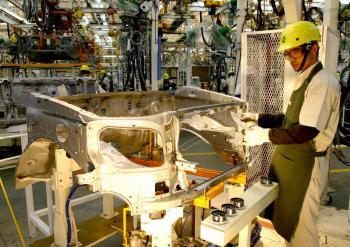China Investment Corp., a state-owned investment company, was officially open for business on Saturday, September 29. According to reports, the agency will be responsible to mange and improve returns on the regime’s US$200 billion foreign exchange reserves.
Heading up the company will be the former vice finance minister Lou Jiwei and the former vice chairman of the National Council for the Social Security Fund, Gao Xiqing. During a press conference, the Communist Party Central Committee Deputy Organization Minister Wang Ercheng announced the above appointments.
Aggressive International Investment
According to a May BBC report, China spent US$3 billion for 9.9 percent of the shares in The Blackstone Group; and in July, joined with Temasek Holdings of Singapore and the China Development Bank—a state-owned policy bank spending another US$3 billion for 5 percent of the shares in Britain’s third largest lender, Barclays.
It has been discussed that the company is planning to invest in BHP Billiton, in order to get a stronger foothold in the world energy resource industry.
Concerns Raised by Foreign Governments
Recent transactions of China’s sovereign wealth funds (SWFs) have already drawn attention from European countries and America. German Chancellor Merkel once commented that SWFs were usually driven by political and other reasons rather than investment returns that drive privately controlled funds. Although usually known for her commitment to free markets, Merkel once said that her government was looking at measures to “protect” German companies from foreign takeovers by SWFs, especially from China, Russia and the Gulf States.
According to a Financial Times report, Washington has asked the International Monetary Fund and World Bank to establish a code of good practice for SWFs.
Because of its huge trade surplus, China’s reserves, surpassing Japan’s, exceeded US$1.33 trillion at the end of June, while the Chinese inflation rate surged to a ten year high with its Consumer Price Index jumping 6.5 percent in August. China needs to invest overseas to ease its inflationary pressure, as well as the pressure to revalue its yuan.


